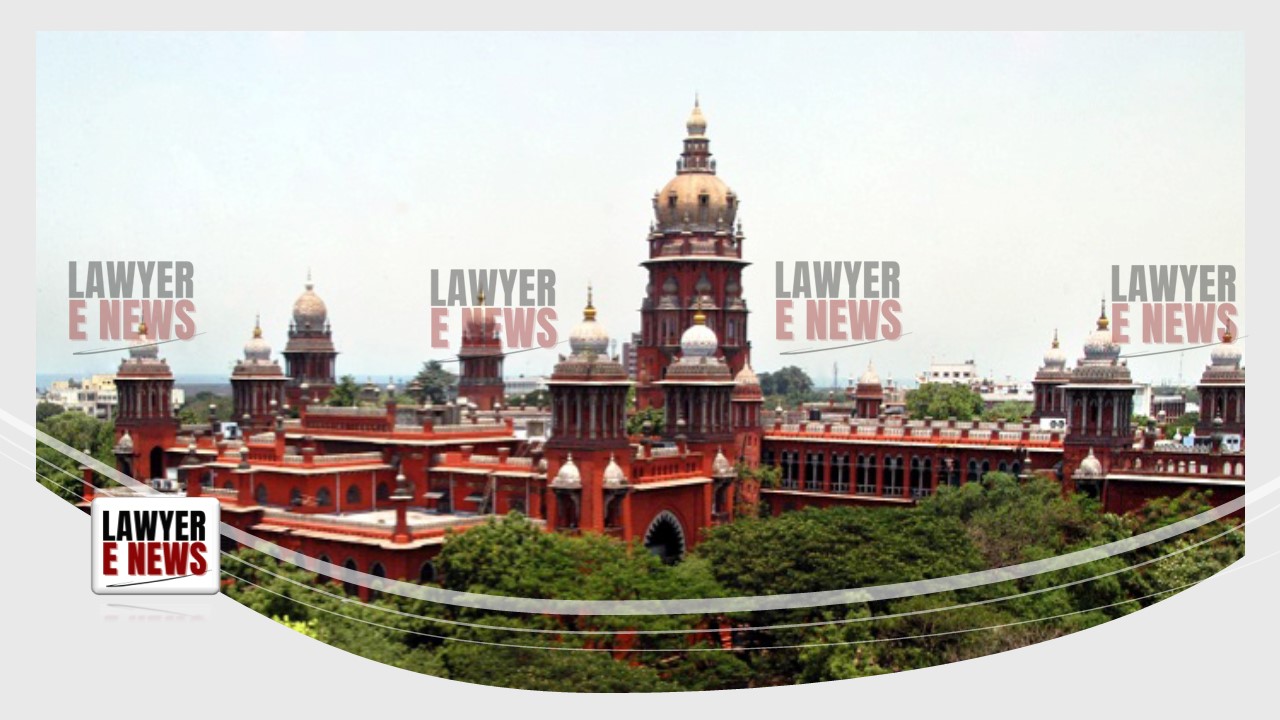-
by Admin
15 February 2026 5:35 AM



In a significant ruling delivered on October 4, 2024, the High Court of Madras dismissed the petition filed by Embio Limited seeking to revoke a patent held by Malladi Drugs & Pharmaceuticals Ltd. The petition challenged the validity of Patent No. 249376, which covered a method for preparing chiral beta-amino alcohols from R(-)-phenyl acetyl carbinol, citing lack of novelty and inventive step under Section 64 of the Patents Act, 1970.
Embio Limited, a competitor in the pharmaceutical sector, sought revocation of Malladi Drugs' patent, claiming that the patented method lacked novelty and inventive steps. Embio argued that Malladi’s process was obvious to a skilled person in the art and constituted a mere workshop improvement over existing prior art, specifically citing European and U.S. patents as relevant prior arts. Embio also contended that there was no significant technical advancement in the patented process.
Malladi Drugs countered these claims by asserting that their process led to higher yield and optical purity, achieving 100% purity compared to the prior art. Malladi also contested Embio's standing, arguing that the petitioner was not a "person interested" under the Patents Act.
Lack of Novelty (Section 64(1)(e) of the Patents Act): Embio claimed the process patented by Malladi Drugs lacked novelty as the steps, solvents, catalysts, and conditions were found in prior patents.
Inventive Step (Section 64(1)(f) of the Patents Act): Embio argued that the method did not exhibit a sufficient inventive step and was obvious to a skilled person in the field.
Malladi Drugs rebutted these claims by pointing out that their process was distinct in achieving superior results in terms of both yield and optical purity, which were substantially higher than those in the cited prior art.
Person Interested: The Court held that Embio, as a competitor manufacturing similar Active Pharmaceutical Ingredients (APIs), qualified as a "person interested" under the Patents Act. Even if Embio had not raised objections at the time of patent publication, it still had the standing to challenge the patent due to its industry involvement.
Novelty and Inventive Step: The Court noted that Malladi’s process achieved a higher yield (60-70%) and purity (99-100%) compared to the prior art, which exhibited much lower results. The Court emphasized that novelty was exhibited in the isolation of β-Amino alcohol as an HCl salt, with optical purity and efficiency far exceeding previous methods. Thus, both novelty and inventive step were upheld.
Justice P.B. Balaji concluded that Embio failed to demonstrate sufficient grounds for revoking the patent. The Court relied on key precedents, including Ollos Biotech Pvt. Ltd. v. Omega Ecotech Products, Novartis AG v. Union of India, and others, to highlight the need for a clear demonstration of lack of novelty or inventive step, which Embio could not establish.
“The 1st Respondent has certainly shown technical advancement over the prior art in the European patent. The yield and optical purity achieved are far superior and reflect inventive steps that go beyond mere workshop improvements.”
The Court also rejected Embio's reliance on prior arts, noting that these were either significantly older or did not achieve comparable results. The patent granted to Malladi was thus deemed valid, with the burden of proof for revocation not met by Embio.
The petition for revocation was dismissed, with the Court confirming the validity of Malladi's patent. The decision reaffirmed the standards for demonstrating novelty and inventive step in patent cases, emphasizing the need for substantial technical advancement and economic significance to support a valid patent.
Date of Decision: October 4, 2024
Embio Limited v. Malladi Drugs & Pharmaceuticals Ltd. and The Controller of Patents
